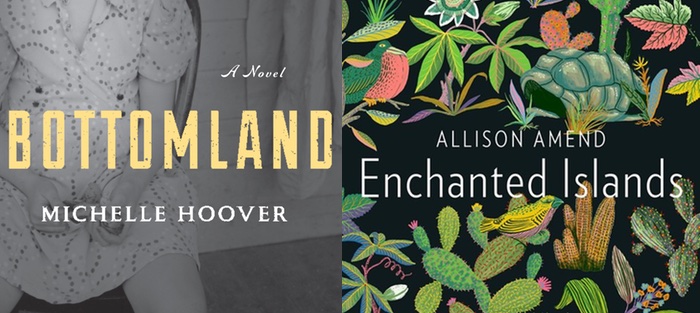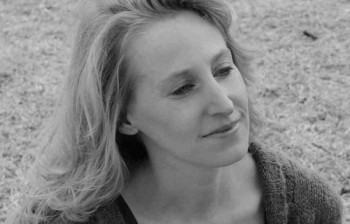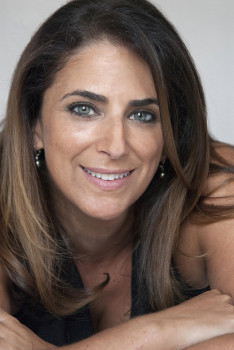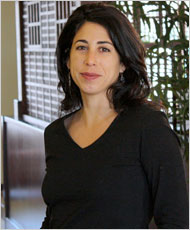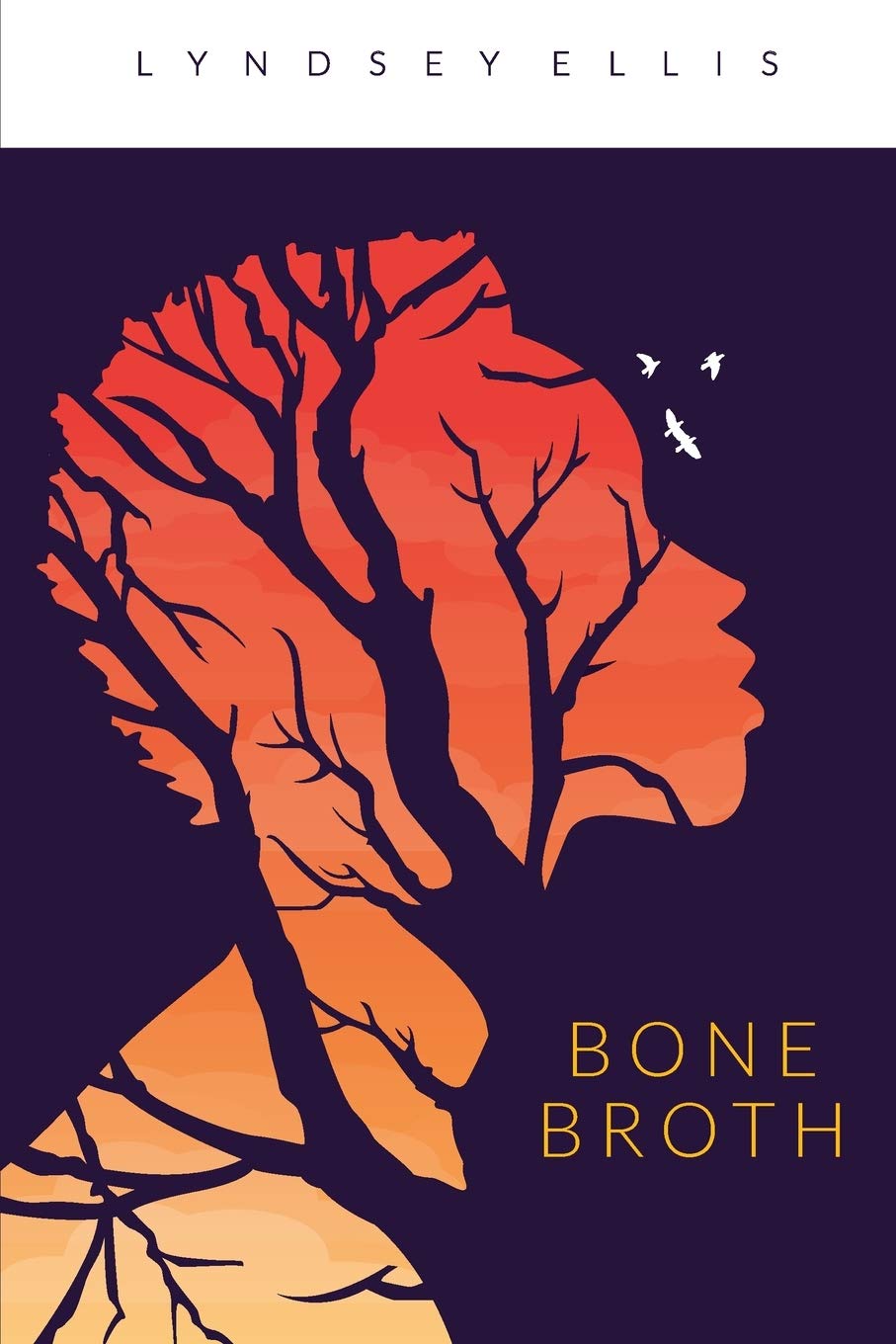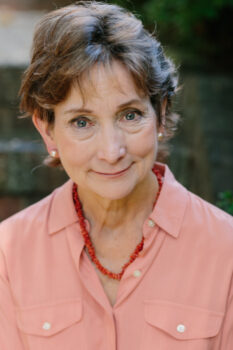With new novels out this spring, both Allison Amend and Michelle Hoover dip into the wells of history and real lives to create stories based in one part fact and many parts fiction. Amend’s Enchanted Islands (Nan A. Talese) found its beginnings in the midcentury memoirs of Frances Conway. She imagines a character whose life changed drastically from school teacher to undercover intelligence officer on the Galápagos Islands both before and after World War II. Hoover’s Bottomland (Grove Press/Black Cat) was inspired by a simple family photograph depicting two great aunts rumored to have disappeared from the Iowa plains in the 1900s. Both novels speak of the immigrant experience and the gutsy act of escaping—from one’s family, one’s self, one’s heritage, and the more predicable paths of women’s lives. Laura van den Berg describes Enchanted Islands as “dazzling” “steeped in the wondrous history of the Galápagos and bursting with the magic of pure invention. An elegant stylist and a masterful chronicler of the most hidden and luminous corners of the human experience, Amend is a spectacular talent.” And Matthew Gilbert of the Boston Globe writes: “There are many compelling things about Michelle Hoover’s potent new novel, Bottomland, not least of all her austere style and its visceral punch. But part of the great pleasure of Bottomland is discovering where the story goes, always knowing that you’re in the hands of a writer who won’t disappoint.”
A Chicago native and a diehard Cubs fan, Allison Amend holds degrees from Stanford University and the Iowa Writers’ Workshop. She is the author of the Independent Publisher’s Award-winning short story collection Things That Pass for Love, and the novels Stations West (a finalist for the 2011 Sami Rohr Prize for Jewish Literature and the Oklahoma Book Award) and A Nearly Perfect Copy. She lives in New York where she teaches at Lehman College and the Red Earth MFA.
Born and bred in Iowa but quickly becoming a New Englander (for the last decade and a half), Michelle Hoover lives and works in Boston where she is the Frannie Hurst Writer-in-Residence at Brandeis University and leads the GrubStreet Novel Incubator program, a year-long MFA-level intensive course in the novel. Her first novel, The Quickening, was a Massachusetts Book Award “Must Read.” She is a 2014 NEA Fellow in support of Bottomland, her second novel, out this March.
Amend and Hoover met years ago as young writers-to-be at the Sewanee Writers Conference—and they’ve remained admirers of each other’s work ever since. Here they discuss the surprisingly common threads between their novels, what a writer must do to create fictional life out of disparate facts, the importance of place, time, and heritage, and the nasty narrative problems writers choose for themselves simply because they’re fascinated by the challenge of seeing those problems overcome.
Interview:
Michelle Hoover: What drew you to Franny’s story?
Allison Amend: I first met Franny when I read her memoirs. I wanted to write about the Galápagos Islands, but I thought the story lay in a series of unsolved murders which took place on Floreana in the 1920s. I read Franny’s memoirs to get more background information, and fell in love with her voice. She was witty, self-deprecating, and a fantastic writer. But what interested me even more was what she didn’t say. There was so much between the lines of her prose; I wanted to know what wasn’t being said. “Enchanted Islands” is that story.
It’s always about that mystery, isn’t it? That unsaid thing beneath the surface, particularly if you’re basing a story off true events and true lives. I consider it a kind of dizzying puzzle for me to piece together: What was really going on? What were the hidden motivations? Who were these people behind their masks?
Your story was also inspired by a real event: two of your female relatives who disappeared. What do you think happened to these girls?
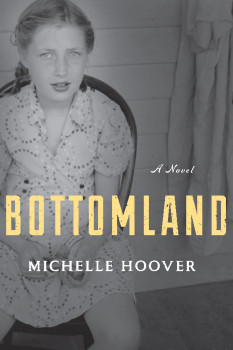 I don’t know what really happened. I’ve heard parts of the story here and there. Not much of it makes sense. No one knows what motivated the girls. No one knows what happened to them in the end. And some of the real truth I eventually discovered seemed dull. Once I had the initial seed and such a strong sense of the characters from a photograph (a photograph of people who were apparently very different from what I made of them), I felt that tug of curiosity. I decided to follow the line of rumor that fascinated me most: that the older of the two, the trouble-maker of the family, did eventually come home, while the youngest daughter—the good girl, the passive, the most prized—never did. I couldn’t help trying to untie that knot.
I don’t know what really happened. I’ve heard parts of the story here and there. Not much of it makes sense. No one knows what motivated the girls. No one knows what happened to them in the end. And some of the real truth I eventually discovered seemed dull. Once I had the initial seed and such a strong sense of the characters from a photograph (a photograph of people who were apparently very different from what I made of them), I felt that tug of curiosity. I decided to follow the line of rumor that fascinated me most: that the older of the two, the trouble-maker of the family, did eventually come home, while the youngest daughter—the good girl, the passive, the most prized—never did. I couldn’t help trying to untie that knot.
I don’t care to expose family secrets. That’s not what I’m writing for. I create stories launched by the real, just the way many authors work off real occurences in their present-day lives. I’m interested in a place, time, and temperament of a certain kind of people, speaking to themes of isolation and ostracization, familial duty, the making of the individual, how characters navigate these in periods so fraught. I’ve actually heard some writers speak of books based loosely on real people or true events as less creative, as somehow lesser than the imaginative leap that fiction usually requires. That idea drives me a little crazy. I think it takes a greater creative leap to attempt to throw yourself into a stranger and try to make sense of him or her in a way that often makes sense of yourself too.
For me the process of creation required even more imagination for this novel. Because the bare details were there, I had constraints to work around. And they were bare bare details—I could only find Ainslie’s draft card and a record of their deaths. Nothing else was readily available. And I didn’t want to write a biography. I was interested in capturing Franny’s voice (though not mimicking it). So while these acted as generative influences, they did require me to stretch my imaginative capacity.
I think writing about foreign or unusual places forces us to do the same, stretching that imaginative capacity.
Your title, Bottomland, hints at a very particular place as well.
Bottomland is land that lies along lakes, rivers, and streams and that often floods, making it very fertile ground. So for me, Bottomland is a place, but it is also a thematic tool. This type of landscape holds two things at once: creation and destruction. And each of my characters must navigate this split between creating something for themselves and going too far, taking too many risks. The setting captures both the promise of discovering a new life and the danger of losing yourself altogether, of drowning.
Enchanted Islands also seems a double place, both enchanted and not, limited, even dangerous but also freeing and full of promise. How do you see it? What did it take for you to get the setting right?
 I am glad to hear you think I got it right! I think for Frances it was indeed both full of promise and a prison. Just the daily struggle to overcome the elements was a challenge. I liked exploring the irony of how banal life is no matter if you’re in a suburb of Cleveland or a tropical island. Of course, a lot of her frustration with the island was with Ainslie, with their relationship. In my opinion it was her inability to trust Ainslie that made her so uneasy; the potential danger of spying was secondary.
I am glad to hear you think I got it right! I think for Frances it was indeed both full of promise and a prison. Just the daily struggle to overcome the elements was a challenge. I liked exploring the irony of how banal life is no matter if you’re in a suburb of Cleveland or a tropical island. Of course, a lot of her frustration with the island was with Ainslie, with their relationship. In my opinion it was her inability to trust Ainslie that made her so uneasy; the potential danger of spying was secondary.
Yes. To me, your book was so much about trust. What a person must sacrifice to trust someone else or remain isolated, the lies and secrets a person must put up with, that kind of delusion or enchantment, or otherwise be forced to exist alone, islanded. I felt to the end that Franny never truly had anyone she could trust. Even Rosalie broke her confidence and her heart, though they remain good friends. Is this kind of isolation a product of the times, of war, of Jewish heritage, of simply being a woman?
I think all of these elements play a part in Frances’ isolation. Certainly, it was difficult to be an educated woman, and an unmarried woman, in the early part of the last century. It was a time of tremendous change—I can only imagine how bewildering it must have been to come of age during that time. But I think Frances herself plays a large role in her isolation. She attaches herself inappropriately to inappropriate people, and expects and wants from them what they can’t give. I don’t think every personality trait can be traced to childhood, but there are ways in which Frances seems to me to be a product of an immigrant upbringing, as well as a Midwestern mindset.
We’re both Midwesterners transplanted to the East Coast. In what ways do you think you remain a Midwesterner? What do you miss about the Midwest? What qualities of the Midwest did you want to highlight in your book?
I grew up among the kind of Midwesterners that show a certain reserve of emotion, often a responsible one. It’s a mindset I admire, one of kindness and transcendence over selfish tendencies, of knowing that your personal emotions are not necessarily paramount to the moment at hand, especially when a group must work together toward a common goal. There’s a work ethic there. As well as a lack of judgment. You do your own thing. I’ll do mine. And we’ll leave each other alone. But of course there’s a flip side to this temperament. The same reserve can turn into repression and separation. It’s a kind of personality I’m obsessed with. I’m always straddling that line myself: between responsible reserve and simply being honest with your thoughts and feelings—and sometimes with yourself.
And I see Franny the same way. She did seem very Midwestern to me. She’s practical minded, tends to keep her strongest emotions to herself unless she considers sharing necessary. She makes do with little complaint. She adjusts. She both trusts people and doesn’t. I sometimes wonder if anyone in the book, including Rosalie, really knows anyone else.
I think Frances and Rosalie and Ainslie know each other as much as any two people can. Or as much as Frances knows herself. Frances spends a lot of the book pretending her life is other than what it actually is. I think this might be the downside of the Midwestern ethos, as you so astutely point out. But it also might be endemic to humanity.
Yes, that pretending. It probably originally had to do with survival, distancing oneself from the realities of work and weather, etc. To me, Frances seemed to gain a greater intimacy with her female friends than with men, with Rosalie more than her lover and husband. It’s as if she’s creating her own kind of family.
The book is an exploration of the way in which we find family—that often it’s not traditional or nuclear, but serves the same function. The book is certainly a paean to female friendship, in all its wonderful complexities. Some of my most fraught and rewarding relationships are with my female friends.
For our characters, Chicago also seems a place to find connection, or at least a greater connection with the autonomous self.
It exists as a place of great hope, but in both our books turns out to be a place of hardship (even harder for your characters than mine). Why do you think this city was so tough around the turn of the century, especially for women?
Your characters have a place to go, a group to accept them and to help, what with their Jewish heritage. It’s strange to even write that sentence, with the continued ostracization that Jews have faced throughout our history. But at the time of my book, around 1920, being German-American wasn’t particularly something people waved flags about either. Anti-German sentiment was still strong, powerful enough to push Prohibition into being (Germans were equated with beer and Germans were evil; therefore….). So my girls didn’t have anyone or anywhere to turn to. In that time period, it seems women were only hired for certain jobs—textiles and the garment industry for example—and not expected to be out and about at night, spending money, independent. So they were isolated further. There were plenty of German-Americans in Chicago, but at that time there seemed a sense of shame for that heritage, or at least a desire to separate yourself from it. I can’t speak for all, but that’s what came up in the letters and journals from my research. So my girls couldn’t admit who they were or what kind of family they were from.
Our choice of early 20th century settings obviously made our writing process more challenging, but we also had to choose a perception and voice that would speak to that time period, with its biases and societal pressures. I thought you handled Franny’s understanding of her husband’s sexuality deftly. She both admits shock, even some disgust, but her present-day narrative voice corrects her past self. This doubleness made her feel both agile and flawed. She grows. She learns. Was it difficult for you to write into her mindset?
I think she herself provided some of the mechanisms by which I understood her. The real Frances’s memoir never mentions sexuality, but she does comment on race with the vocabulary and prejudices of the time. I did a lot of research on attitudes toward homosexuality and homosexuality in the military during that time. It certainly was not as unfathomable as we imagine. And don’t forget; she loves Ainslie deeply. Love can foster understanding, or at least acceptance.
I suppose that’s both the power and the difficulty of first-person, being forced to honestly represent old prejudices.
I struggled with telling the reader things that Frances either doesn’t know, or isn’t willing to admit. It’s the classic first-person challenge, to “see around” the character. I found it a fun struggle, but my new book is set firmly in close third person which is, in my opinion, the point of view with the most possibility.
Your own book has five first-person narrators. Why did the book require these multiple viewpoints? How did you decide who gets to tell which part of the story?
I think I was also attracted to the challenge, a rather ridiculous one, to forge five voices. Until I had a full draft, I constantly tried to back away from the first-person, to write the book in a serial limited third instead, but the voices didn’t like it (I know, that sounds creepy). Also, I felt the choice fit for me thematically. The family lives together in a very isolated farmhouse, and yet they are also divided from each other by that old Midwestern habit toward civility and self-censoring. I describe the house as a set of boxes, and because of the violence the family experienced during the war from their own neighbors, many of the doors of the house are locked, the windows nailed shut. So the family exists very closely together. They can guess each other’s footsteps in the dark, know each other’s smells and habits as if they were their own. But they don’t know each other’s fiercest passions, their fears and obsessions. They keep secrets. The first person suited this separateness. And because the book is also about language—the way the German language was banned during the war as well as individual voices of protest silenced—I wanted them each to have a chance to speak their own story, in their own words. Their voices cross, as many in a family would, but are also wholly themselves.
You gave yourself a similar narrative problem, didn’t you, by choosing to span such a long period of time—a full life? And you handled the problem so efficiently, so convincingly. I’ll probably use some of your passages in my teaching. There are paragraphs that cover years, a chapter that holds decades. Even though I believed in my choice of narrators, it was still a puzzle for me to to solve. Was dealing with such a long timespan equally a puzzle for you?
Oy! This novel almost broke my brain. I kept thinking if I got the right school supplies I could figure out the time frame. I must have spent thousands on Post-it notes and folders and fancy software. Of course, Post-its won’t solve problems. Neither will folders. You just have to puzzle it out. Some of the chapters that are interstitial I wrote and then excised. Some I put off writing and then realized that was because they weren’t necessary. I think when writing an entire life (and there are not many novels which do this), compression and expansion of time is necessary, or it becomes a picaresque.
What writing goals are you working on next?
I handed in Enchanted Islands on a Monday and started a new novel the next morning. Mostly just so I could say I did it. Publishing is such a drawn-out process that you’re well into the next book when the current one comes out. Obviously, my goals are to improve as a writer—with each book I get more efficient, make fewer mistakes (or, at least, different ones). I want my characters to resonate with readers—it is a high compliment if people say the book stayed with them.
How about you?
That’s impressive. You’re flying! Well, I’ve heard from people that Bottomland haunted them for weeks. That’s what I want. The highest goal. I think that’s what all writers want.
My laptop went defunct several months ago, which put me into a tizzy. So I took out some notecards and planned out my next book, just to have something to do with myself. The novel is based off a real personality, similar to yours, but I plan to do a Lily King kind of fictionalization of her—changing her name, her details, her destiny, etc. Euphoria gave me so much license to do that, I could kiss her (plus, it’s an amazing book). We’ll see how it goes. The story is otherwise a rather unexpected one, at least from what I’ve written about before. Fingers crossed it works. At this point, a writer never knows.
I, too, am a huge fan of Euphoria. Lily King fan club! True, there’s always the fear that the next one won’t work, but I have no doubt that you will be able to pull it off. Thanks for a terrific and perspicacious conversation! It’s been a pleasure.
Here’s to new puzzles and new books!

